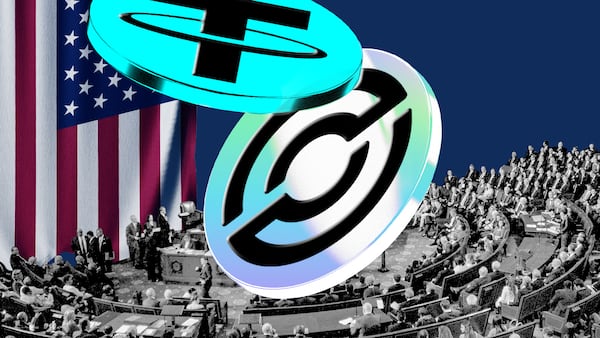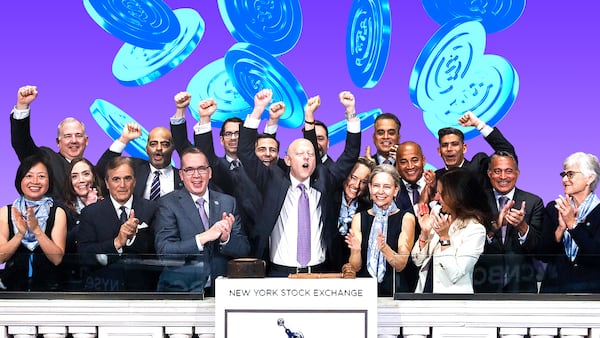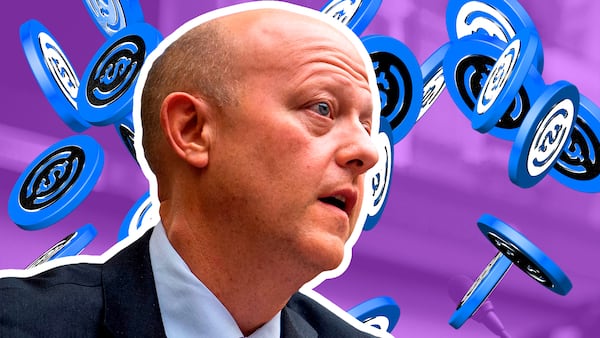- ICO platform Sonar launched with a bang on Monday.
- A forthcoming blockchain called Plasma used Sonar to raise $500 million in just five minutes.
- But whales led the charge, with just 10 wallets snapping up 40% of the tokens.
Plasma, a forthcoming stablecoin-focused blockchain, raised $500 million within five minutes in a public token sale on Monday.
But the token sale was dominated by a group of deep-pocked investors, raising concerns on the fairness of the process.
The raise was conducted through Sonar, a new public token sale platform from influential crypto trader and investor Jordan Fish, better known as Cobie.
Echo, Fish’s private token sale platform, announced the release of Sonar on May 27, with Plasma being the first project to use the platform.
The blockbuster sale augurs a return of the initial coin offering, or ICO, a type of crypto fundraising popular in 2017 and 2018.
“Our goal with Sonar is to get as close to ICO-era market dynamics as possible, while providing compliant tools for founders who don’t want to go to jail etc,” Echo’s announcement said.
The ICO craze of 2017-2018 was a defining moment in crypto history, with blockchain projects raising billions of dollars through public token sales. This allowed anyone to invest in early stage crypto startups, and many notable projects took this route, including Ethereum in 2014.
At its peak several years ago, ICOs raised over $13 billion. However, the era effectively ended in late 2018 due to regulatory crackdowns, multiple fraud cases, and a general market crash.
Plasma’s sale does not grant immediate access to the tokens. Instead, it offers investors the option to buy the tokens after a lockup period that varies based on an investors’ country of origin.
Despite this, investors rushed in to secure a stake in the buzzy new blockchain.
The token sale was intially capped at $250 million, but the developers behind Plasma raised the cap to $500 million after it gained significant attention over the past two weeks.
The blockchain had already attracted significant investors, raising a total of $27.5 million from backers including Peter Theil, Cobie, Tether CEO Paolo Ardoino, and crypto exchange Bybit.
Coming off the back of Circle’s initial public offering and the rapid advancement of stablecoin legislation in the US, stablecoins are attracting significant attention, as is the infrastructure that they rely upon.
Whale Activity
Plasma was built with stablecoins in mind, offering zero-fee Tether transactions, among other things.
While it uses Bitcoin for settlement, Plasma is also Ethereum-compatible, meaning software developers can easily deploy Ethereum-based applications on the blockchain.
Although it has generated significant hype, the domination of the token sale by so-called whales has sparked some concern.
Deep-pocketed investors accounted for a significant portion of the raise, with the top 10 depositors contributing over 40% of the $500 million. One wallet sent just under the maximum single deposit of $50 million, accounting for about 10% of the raise.
In total, there were 1,111 depositors and a medium deposit amount of about $35,000.
Given the large deposits, however, the average investment was worth more than $400,000, according to Ian Unsworth, co-founder of Kairos Research.
One wallet spent over 39 Ether, or over $100,000, in transaction fees to deposit over $10 million into the vault.
The timing and the size of the deposits have some skeptical on how fair of a launch this really was.
“Only 1,111 people got in. Top 10 got 40% of the cap. ICOs are not solved,” said djma, a pseudonymous partner at crypto venture firm Alliance DAO.
At least one wallet even received approval to deposit into the vault before the vault was officially live.
Whether or not Plasma’s token sale sparks an ICO wave, it could set a precedent for future projects seeking to raise money from retail investors.
In recent years, most projects have raised money either through venture capital funds or through a gamified airdrop or point system. Some argue that ICOs offer an alternative way of raising money and gaining supporters.
Sonar has provided the platform for project token sales, and if Plasma and others succeed, a major change could occur in the public markets.
Zachary Rampone is a DeFi correspondent at DL News. Have a tip? Contact him at zrampone@dlnews.com.









